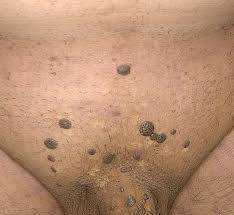Understanding Genital Warts: Causes, Symptoms, and Treatments
Genital warts are a common sexually transmitted infection caused by the human papillomavirus (HPV). This virus can be transmitted through sexual contact and can lead to the development of small, flesh-colored growths on the genital area. While genital warts are not usually painful, they can cause discomfort and distress due to their appearance and the stigma associated with them.
Symptoms of genital warts can vary from person to person, but common signs include small, raised bumps on the genitals, itching or discomfort in the genital area, and bleeding during intercourse. It is important to note that some people may have HPV without showing any symptoms, making regular screenings and testing essential for early detection and treatment.
Genital warts can impact one's emotional well-being, leading to feelings of shame and anxiety. Seeking support from healthcare professionals and loved ones is essential for managing the physical and emotional aspects.
Treatment options for genital warts focus on removing the warts and managing the HPV infection. This can be done through various methods such as topical creams, cryotherapy (freezing the warts), laser therapy, or surgical removal. It is crucial to consult a healthcare provider for proper diagnosis and treatment, as untreated genital warts can lead to complications such as an increased risk of certain types of cancer.
Preventing genital warts involves practicing safe sex by using condoms consistently and correctly, limiting the number of sexual partners, and getting vaccinated against HPV. Maintaining good hygiene practices and avoiding sexual contact with partners who have visible warts can also help reduce the risk of infection.
In conclusion, genital warts are a common and treatable condition caused by HPV. By understanding the causes, symptoms, and treatment options available, individuals can take steps to protect themselves and their partners. Remember, early detection and prevention are key in managing genital warts and promoting overall sexual health.




No comments yet
Be the first to share your thoughts!